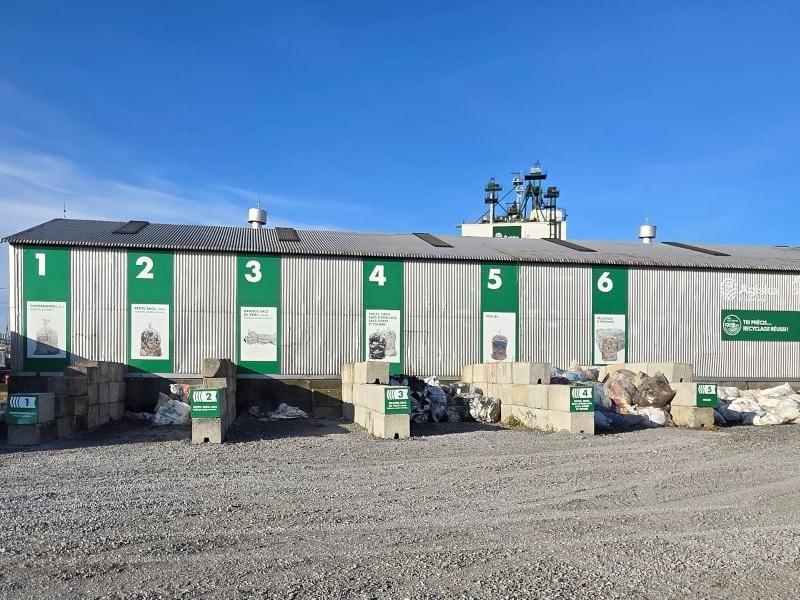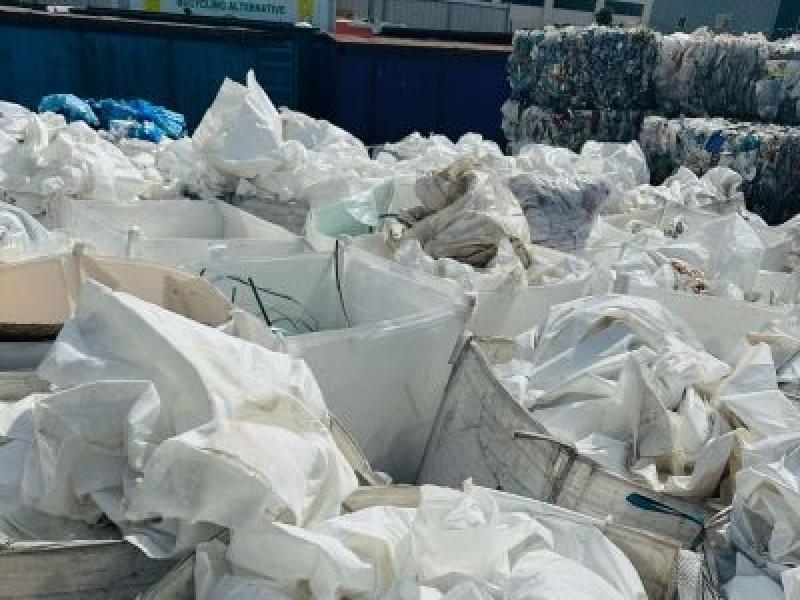
A Quebec law that requires agricultural plastic producers to manage their products at the end-of-life has propelled non-profit AgriRÉCUP to a record year for recovery and recycling in 2024.
In an annual report published in October, the organization said it managed approximately 4,200 tonnes of agricultural plastics in 2024, almost 45 per cent more than 2023. Those products include tarps, seed and pesticide bags, films, pesticide and fertilizer containers, and maple syrup tubing.
AgriRÉCUP is an industry-funded organization based in the Montreal suburb of Saint-Bruno-de-Montarville. It is the Quebec brand for Canadian non-profit Cleanfarms, which operates in every province. Since its founding in 2010, the Toronto-based Cleanfarms has handled approximately 97,000 tonnes of agricultural plastics.
Cleanfarms collaborates with manufacturers, retailers, farmers and governments to collect, recycle and dispose of agricultural plastic waste. Partnering with the organization can help its members meet their regulatory obligations, which have become more stringent in Quebec, AgriRÉCUP says.
An amendment to Quebec’s extended producer responsibility (EPR) law to account for most kinds of agricultural plastic waste was passed in 2022 and came into effect in 2023. In its first year as a permanent initiative, it played a pivotal role in the surge in activity in 2024, Christine Lajeunesse, Cleanfarms’ director of Eastern Canada, said in an interview with Sustainable Biz Canada
“That EPR policy has really made a significant change in the quantity of material that we’ve been collecting,” she said.
As the evolving law continues to account for more products over time, Lajeunesse is already seeing evidence that AgriRÉCUP will be handling more waste in the future, a sign of how EPR policies can encourage more responsible waste diversion.
Giving farmers a practical way to manage plastic waste
Canada’s farms generate approximately 60,000 tonnes of agricultural plastic waste per year, and Quebec contributes around one sixth of the total, Lajeunesse said. AgriRÉCUP is one of Cleanfarms’ largest branches, with thousands of participants providing over 40 per cent of the 10,100 tonnes collected across Canada in 2024.
By partnering with Cleanfarms, businesses and farmers can ensure such bulky wastes avoid being sent to landfills. “That makes it really important to have some good recycling programs,” she said, “so that farmers have a practical way to manage the material responsibly and it keeps it out of landfill.”
Additionally, Cleanfarms supports local business such as recycling facilities and trucking services, Lajeunesse explained.
AgriRÉCUP operates a network of almost 200 collection sites in Quebec and works with local recycling companies to decontaminate, wash and process the collected materials. Almost all of the containers — 98 per cent — are recycled. For waste that is more difficult to recycle, such as mixed material bale tarps, Lajeunesse said other actions are taken, such as being burned to produce energy.
Its recycling partners in Quebec include:
- Environek, a recycling company based in Saint-Malachie, that processes maple syrup tubing;
- RPM Éco, based in Blainville, which processes plastic containers for transformation into agricultural drain tiles by a fellow Quebec business; and
- Lachute-based Modix, which recycles silage and hay plastics to explore new solutions for packaging plastics.
Readying for the EPR amendment

To prepare for the EPR amendment, AgriRÉCUP “took a long time to prepare for the upcoming change,” Lajeunesse said.
For example, it organized pilot projects to test different collection methods. It started small, then grew the size of the pilots until it felt more comfortable moving the processes to larger scale.
The non-profit worked closely with manufacturers, distributors and farmers in its orbit to inform them about the upcoming changes. In anticipation of a larger collection volume, AgriRÉCUP worked with its partners to create more collection sites.
In light of the regulatory changes and the preparations by AgriRÉCUP, there was a 62 per cent year-over-year increase in the recovery of agricultural films and strings in 2024, reaching approximately 2,370 tonnes. For maple syrup tubing, 733 tonnes were recovered in 2024, a 28 per cent increase from 2023.
AgriRÉCUP has already matched its 2024 volume
It was a challenge to set up a new program amid a high level of participation, Lajeunesse said. The non-profit had to move quickly to establish more collection sites and transportation partners.
“We had to turn around and adapt very quickly,” she said. “But we’re there and we’re quite happy how the program is working right now.”
AgriRÉCUP is continuing to see rising demand for its service. Lajeunesse said the non-profit had collected the amount of waste it recovered in all of 2024, as of the end of October.
With EPR rules in Quebec yet to cover the categories of plastics that include tunnel coverings and greenhouse coverings, Lajeunesse said AgriRÉCUP is waiting for the government to account for those two types of waste, which will further widen its responsibility.









